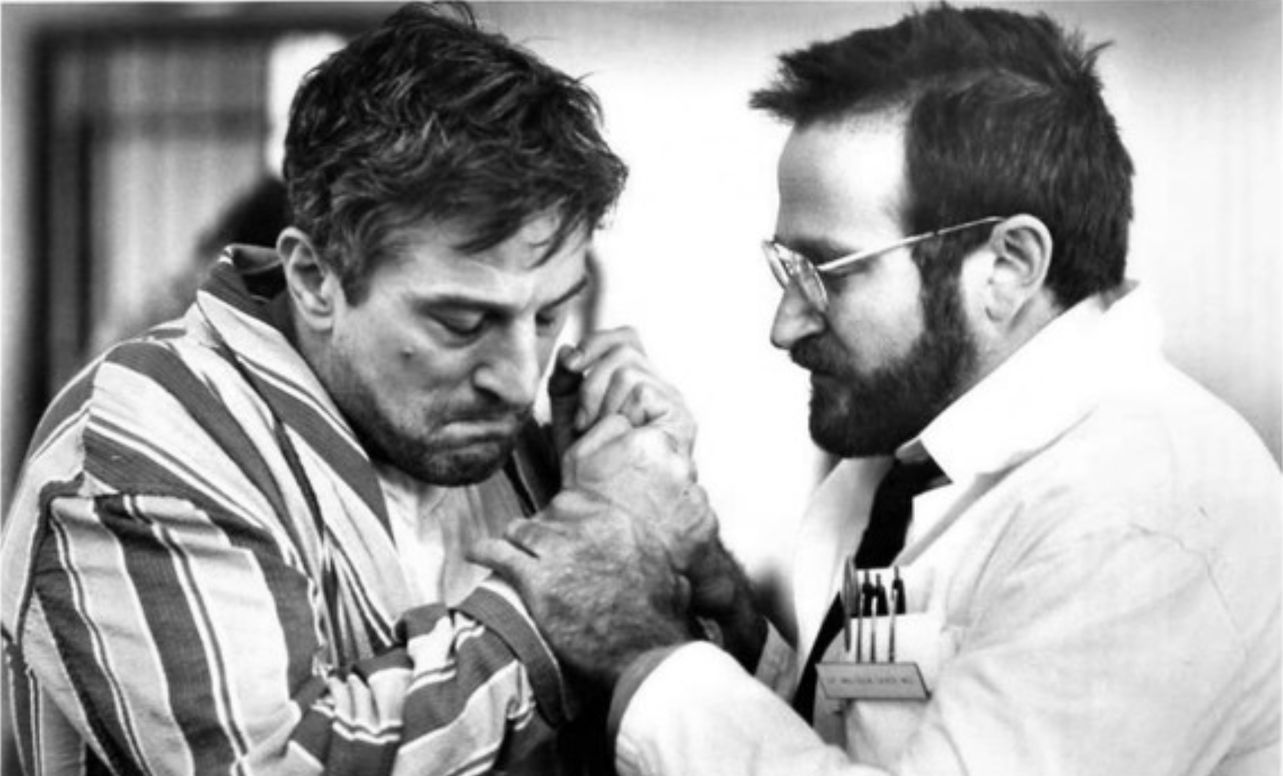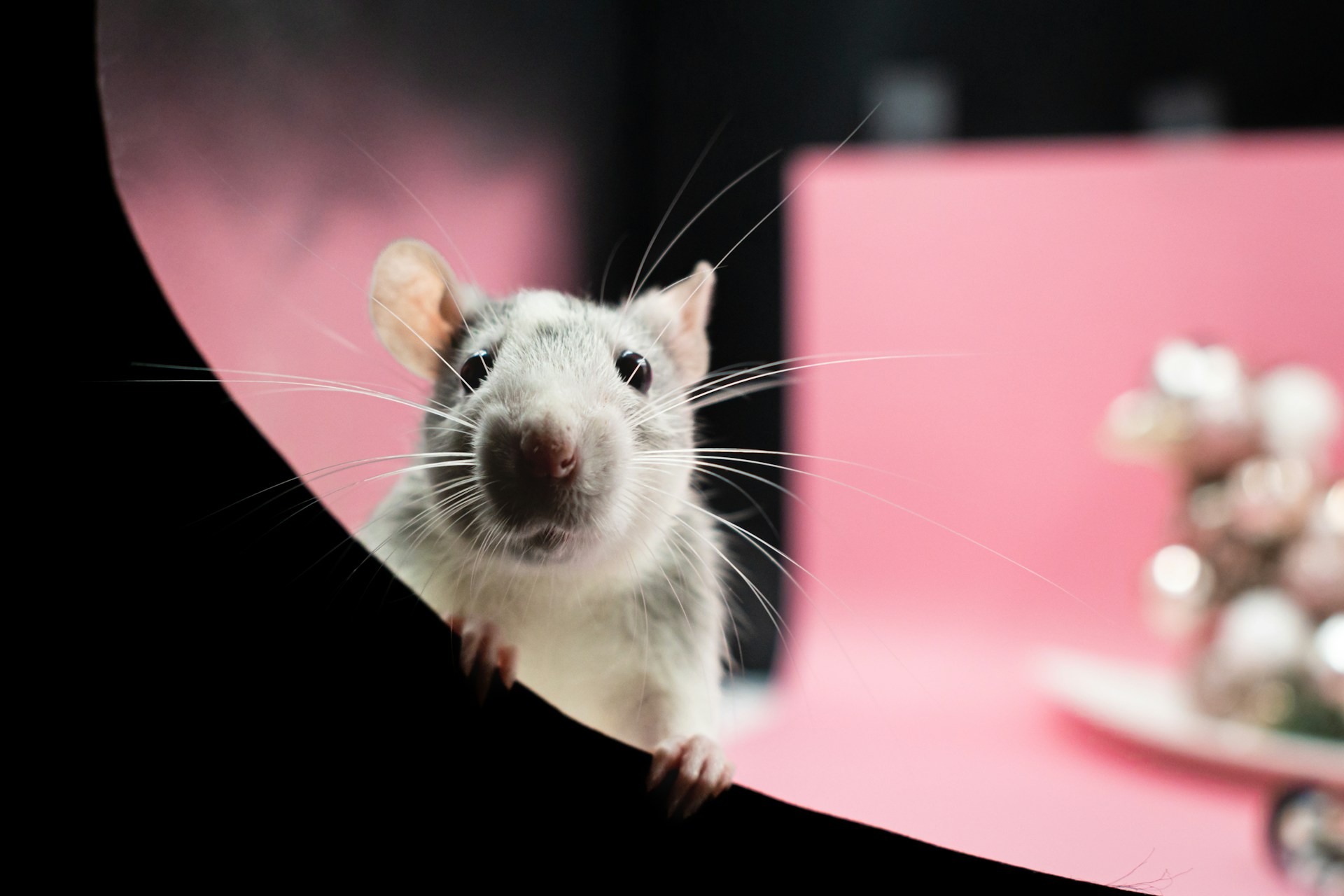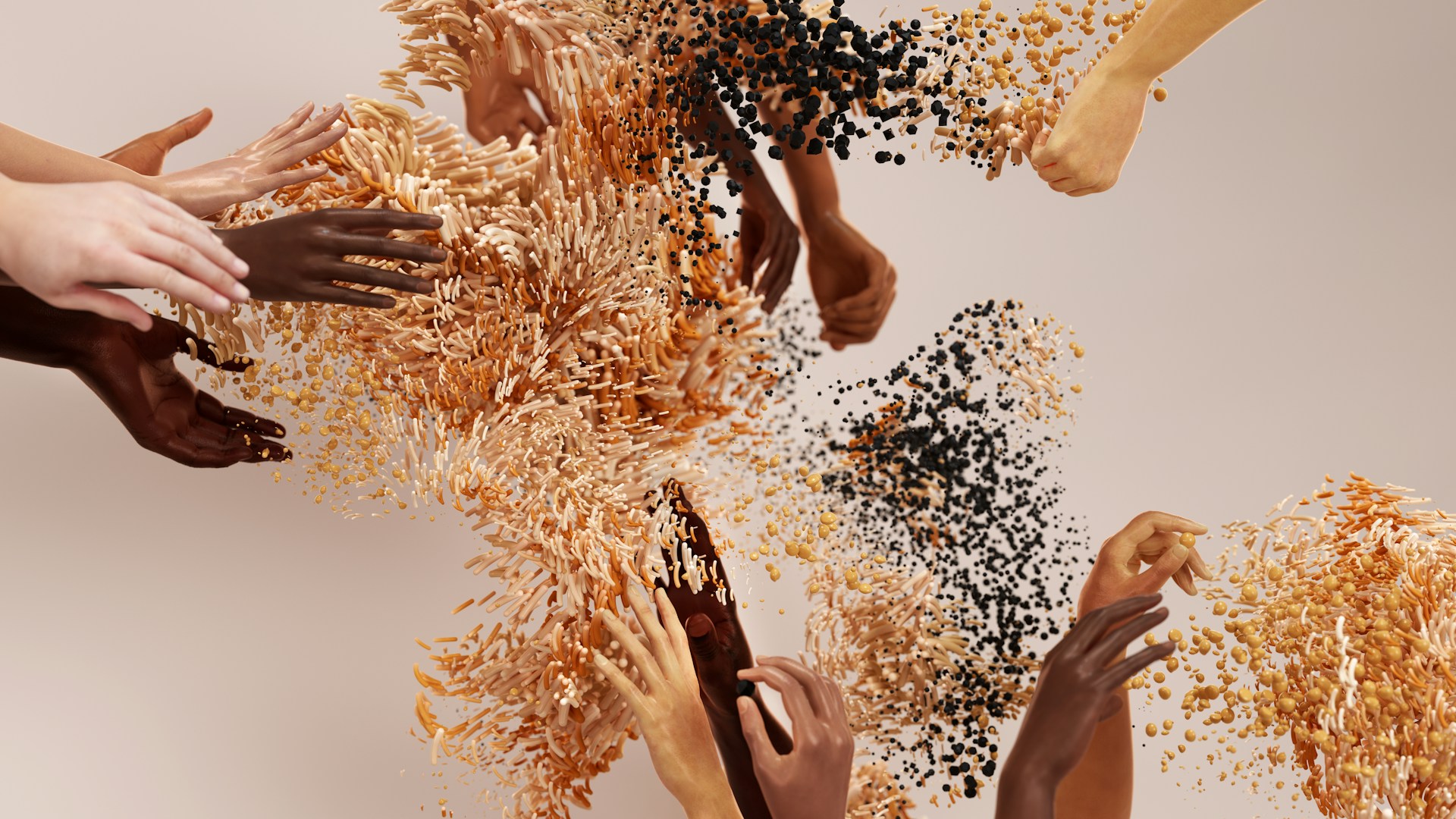When experiments of the mind cause heartbreaking side effects. Image credit: CaptainOT, Movie Stills, Editorial Use Only.
Robert De Niro’s best role was not a gangster—change my mind. Overshadowing even Robin Williams (Dr. Malcolm Sayer) in the movie Awakenings is Robert De Niro, playing a catatonic patient, Leonard Lowe, in the summer of 1969. The film is based on the memoir by neurologist Oliver Sacks, who treated patients who survived the 1917–1928 epidemic of encephalitis lethargica. This is a disease of unknown cause, manifesting in lethargy, delayed physical and mental responses, tremors, behavioural changes such as psychosis, as well as muscle weakness and pain. Encephalitis lethargica may even lead to a coma or Parkinson’s, which causes uncontrolled movement.
In the movie, Dr. Sayer attempts to treat Leonard Lowe, among other patients who suffer from these symptoms, with L-DOPA to increase levels of dopamine, a chemical called a neurotransmitter, in the brain. This is the same drug Robin Williams later took for his own battle with Parkinson’s disease. The lives of Dr. Sayers patient’s were thus restored with full-effect. The plot twist? Their recovery is not permanent, and soon Leonard must watch himself degenerate while still aware of his condition.
This story is not unlike another: Flowers for Algernon, a 1958 novel by Daniel Keyes, later adapted into the Oscar-winning film Charly in 1968. The novel follows the perspective of Charlie Gordon, who suffers from phenylketonuria, which causes intellectual disabilities, exhibited by Charlie in his poor spelling, misjudgement of other’s intentions, and innocent portrayal of daily life. Charlie gives muddled consent to participate in a surgical procedure with the promise of making him smart.
Algernon is his predecessor, a lab mouse who now fosters human intelligence and can complete a maze in record time. As Charlie becomes “smarter” the writing in the book improves, and he welcomes new aspects of life that had been previously closed to him. With enhanced knowledge also comes self-awareness, especially of his past state of mind and its limitations. Soon Algernon takes a turn for the worse and regresses back to his murine intelligence. Charlie becomes a scientist himself in an effort to find a permanent solution before his fate culminates as Algernon’s.
Both Flowers for Algernon and Awakenings have since been cited by scientific journals such as Nature and The BMJ, which praise their insightful portrayal of research ethics.
Both Flowers for Algernon and Awakenings have since been cited by scientific journals such as Nature and The BMJ, which praise their insightful portrayal of research ethics. While Oliver Sacks’ memoir of his own research followed closely the tribulations and triumphs of his individual patients, Daniel Keyes was inspired by infamous scientific research of his time. Among various cases that impressed upon Keyes was the Tuskegee Syphilis study run in Alabama between 1932 and 1971. Hundreds of African American men were infected with syphilis and deliberately left untreated (despite the discovery of penicillin in 1940) to observe the natural progression of the disease. Not only were the men unaware of this, but they were also tricked into believing they would be given free healthcare. It is obvious the discrimination and ethics of the Tuskegee research were immoral (those experiments should have never occurred in the first place).
It is also clear that when we want to alter someone’s body we must have their informed consent, but what happens if someone cannot give this consent? Society has largely explored this ethical conundrum in the context of children’s rights, culminating in the Children’s Act of 1989. Yet, there is ongoing debate even on whether children should be allowed to make their own decisions (think vaccines or gender-reassignment surgery). Indeed, for those interested, a great novel that explores children’s rights to accept or refuse medical treatment is The Children’s Act by Ian McEwan.
If we have doubts about a child’s license to decide their own fate, imagine how much tougher it is to determine whether an adult should no longer be in charge of their own treatment, especially if the mental capacity of that adult is compromised. What happens in the case of Algernon, Charlie, or Leonard? We cannot communicate with Leonard, we don’t know if Charlie understands the full scope of his treatment, and with Algernon there is the possibility of both lack of comprehension and communication. To entertain an even more complicated scenario, we need to consider individuals battling dementia or some types of psychiatric disorders. The person afflicted may legally be regarded as a fully-capable adult, but in reality may not even be aware they have a condition that could benefit from treatment.
It is also clear that when we want to alter someone’s body we must have their informed consent, but what happens if someone cannot give this consent?
In Flowers for Algernon, although Charlie did not have full informed consent, he was, to some degree, aware of his condition. However, it can even be the case that a patient may not know of an underlying problem. Anosognosia, or lack of patient awareness regarding their neurological or psychiatric condition, is prevalent in dementia and some psychiatric disorders. This little known syndrome affects 10–14% of stroke patients with hemiparesis (inability to move one side of the body), 50–90% of people suffering from schizophrenia, 40% suffering from bipolar disorder, and 81% of Alzheimer’s patients.
A quick search on Google highlights that unmonitored anosognosia can culminate into serious consequences such as homelessness, arrest or incarceration, violence, and even suicide, because the individual did not have access to the support or medication they needed. It is often the case that patients cannot be legally required to undergo treatment until a dangerous event, such as one of the formerly listed incidences, occurs. Even if the patient were to accept therapy, few treatments exist for anosognosia. Vestibular stimulation seems to briefly ameliorate symptoms. However, it is likely few people would agree to have electrodes attached to their head in order to stimulate their brain function, as this procedure carries risks, is invasive, and performed while the patient is awake.
Furthermore, as anosognosia is a syndrome with potentially numerous unknown causes, one therapy may not suit all. As more approaches fail, a patient could become even more discouraged to pursue therapies. This leaves people in desperate circumstances before they are met with help. When one is at war with one’s alter ego, or out of touch with reality, they may be more vulnerable to danger and incarceration. A relative, friend, or state could act as referee or anchor. Yet, in the eyes of an anosognosia patient, a person forcing you to get treatment for a condition you don’t believe you have is no better than the people that carried out the Tuskegee trials. And so, heartbreak ensues from both sides. The witness (a relative or friend) remains helpless and the patient feels deceived.
Anosognosia, or lack of patient awareness, is prevalent. This syndrome affects 50–90% of people suffering from schizophrenia, 40% suffering from bipolar disorder, and 81% of Alzheimer’s patients.
There is also another argument to make. Both the patients in Awakenings and Charlie watch dreadfully as Leonard and Algernon regress to their former state. Their shortcomings and future degeneration are blatantly manifested in their pioneer counterparts. This causes devastating emotions for Sack’s patients and Charlie, to the point where one wonders if ignorance is more compassionate in such a scenario. A grandparent in a nursing home, battling dementia, is frustrated when they realise they cannot remember your name, and may be happiest when reliving their own youth. Should one intervene simply because their mind does not match their physical circumstance?
In the future, as drugs are developed to battle neurodegenerative and psychiatric disorders, so are the ethical implications for selecting patients in clinical trials, or even for using such therapies on patients who, for one reason or another, do not agree to treatment. Sometimes, it is a cruel infinite regress: you are too sick to recognise you need treatment, but you can only access said care by realising you are sick and need it. Where can or should a well-meaning bystander intervene in this vicious cycle?
Currently, there is an unmet moral demand for better understanding, legislation, and protocols on how to support such individuals and their best interests with dignity and compassion. Just as important as the neuroscience itself will be society’s acceptance that not everyone’s reality is perceived the same. We are all Algernons in a maze of our own experiments called life. In the end, why should it matter how long we take to run a maze, if patience and empathy are on our side?





